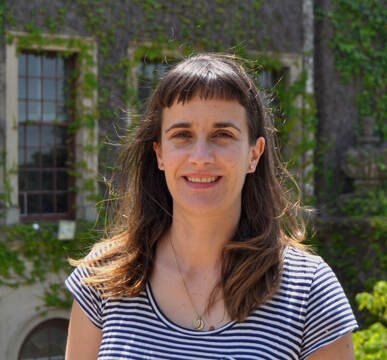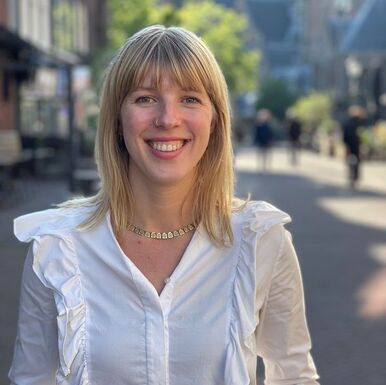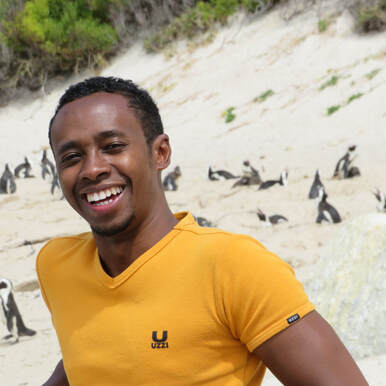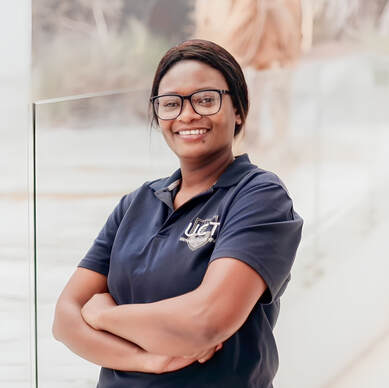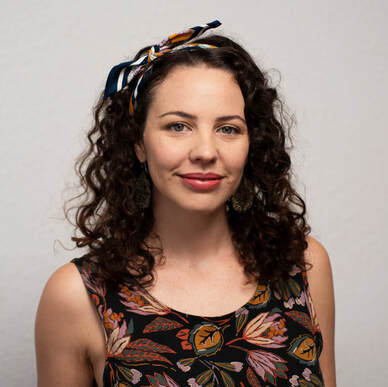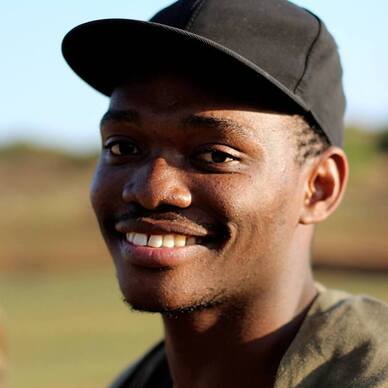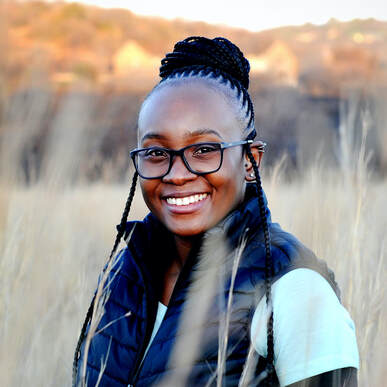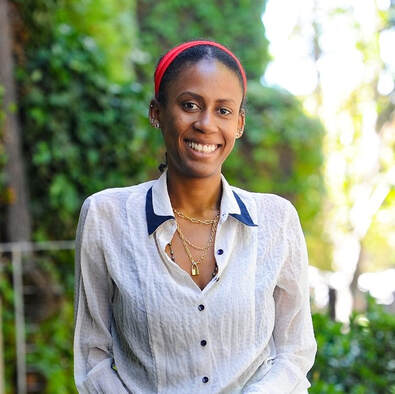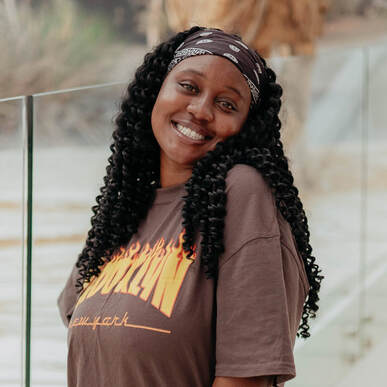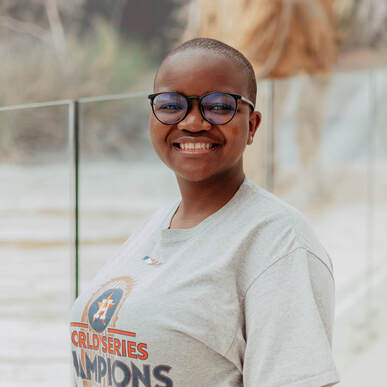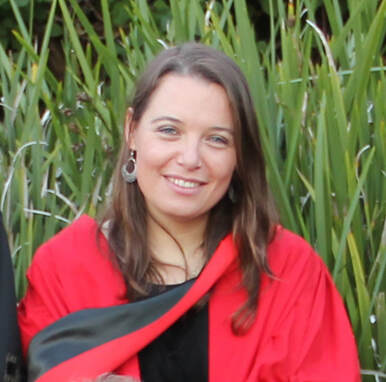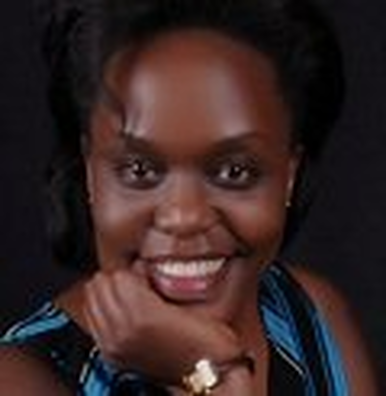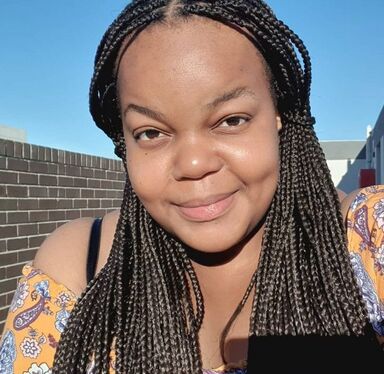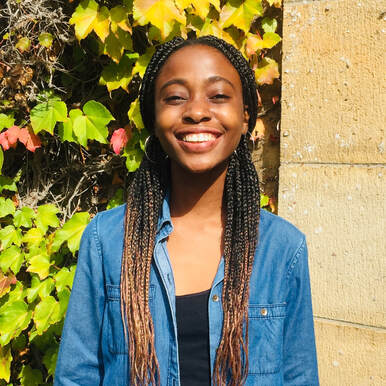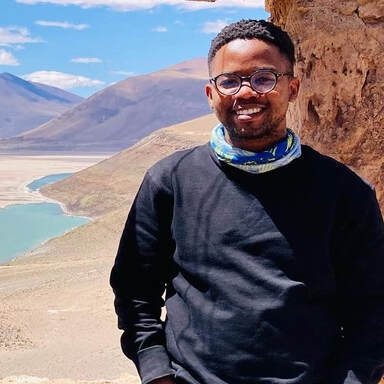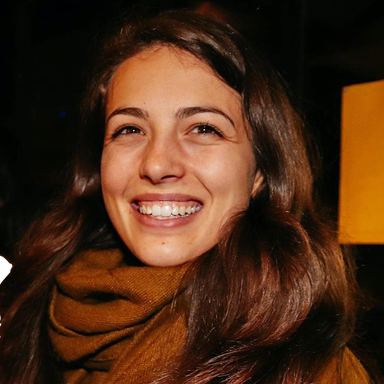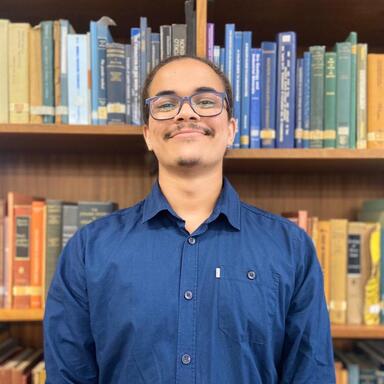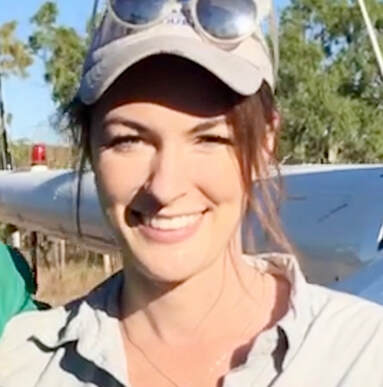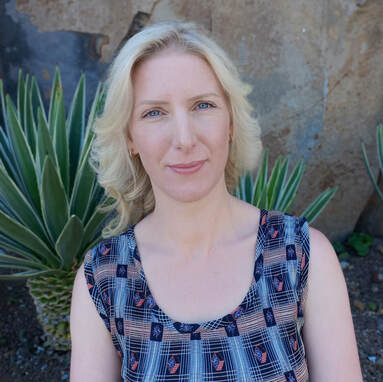Group Leader
Dr Robyn Pickering
Senior lecturer and co-director of HERI
I use carbonate rocks to understand the when and how of human evolution in South Africa. Knowing how old early human fossils and occupation sites are is a key piece of the puzzle of human evotuion. I have worked on the development of the U-Pb and U-Th chronometers to date carbonates associated with human evolution for the last 15 years. To understand how our early human relatives lived, I use the carbonates to investigate how different the hydroclimate was in the past. Best part of my research: Fieldwork! And writing papers with my students. Currently based at HERI / Department of Geological Sciences, UCT Affiliated with La Trobe University, University of Melbourne Academic history: 1999 - 2001: BSc in Geology and Archaeology at the University of the Witwatersrand (Johannesburg) 2002: BSc Hons in geology and Palaeontology 2003 - 2004: MSc Geology – specialization U-Th dating cave deposits (Wits, Johannesburg) 2005 - 2009: PhD at the University of Bern (Bern, Switzerland) 2009 - 2015: Post doc at the University of Melbourne (Melbourne, Australia) 2016: Lecturer, Department of Geological Sciences, University of Cape Town 2019: Senior Lecturer, Department of Geological Sciences, Co-Director, Human Evolution Research Institute, University of Cape Town |
Postdoctoral Research Fellows
Dr Rieneke WeijI’m a Quaternary palaeoclimatologist and geochronologist. My research involves U-series dating and proxy analyses of secondary carbonates (speleothems, travertines, tufas). I’m specialized in reconstructing past climate change, particularly variability in the hydroclimate in the Southern Hemisphere semi-arid subtropics. I started my first postdoc here at UCT in January 2022 and currently work on speleothems from the Cradle of Humankind in South Africa and various sites in southern Australia including the Naracoorte Caves.
Best part of my research: Wearing my lab PPE outfit and collecting speleothem rubble (not rubbish) in the field. Currently based at HERI / Department of Geological Sciences, UCT Academic history: 2010 - 2013: BSc Earth Sciences at the VU University (the Netherlands) 2013 - 2016: MSc Earth Sciences – specialization Solid Earth at the VU University (the Netherlands) 2015: MSc Erasmus program at University of Innsbruck (Austria) 2017 - 2021: PhD at the University of Melbourne (Australia) |
Dr Andriantsilavo (Tsilavo) H.I. Razafimanantsoa
I am a Palynologist with leanings towards palaeoecology and archaeology. My research focuses on understanding long-term environmental change in Southern Africa during Quaternary. It entails exploring the interaction between ecosystems and its associated drivers including anthropogenic and climatic through the interpretation of proxies such as fossil pollen, microscopic charcoal, dung spores and diatoms.
Best part of my research: collecting sediment cores in the field, counting and identifying proxies under the microscope. Currently based at HERI / Department of Geological Sciences, UCT Academic history: 2018-2021: PhD in Applied Palaeoecology, University of Cape Town (South Africa) 2015: MSc degree with distinction in Palynology, Botany and Plant Ecology, University of Antananarivo (Madagascar) 2010: Honours degree in Botany and Plant Ecology, University of Antananarivo (Madagascar) 2009: BSc degree in Botany and Plant Ecology, University of Antananarivo (Madagascar) |
Dr Precious Chiwara
My work focuses on identifying behavioral differences between Earlier Stone Age (ESA) and Middle Stone Age (MSA) hominins in South Africa. I investigate raw material procurement strategies in the Tswalu reserve, southern Kalahari, contrasting ESA and MSA quartzite lithic assemblages to determine if there was an increased selectivity of raw materials over time. I further identify the exact sources of these quartzite raw materials within the Tswalu Korannaberg Range, contributing to our understanding of hominin mobility patterns within the Kalahari Basin.
Currently based at HERI / Department of Geological Sciences, UCT Academic history: 2024-2025: GENUS Postdoctoral Research Fellow, UCT 2021-2023: PhD in Archaeology, University of Cape Town 2017-2018: Master in Archaeology, University of Zimbabwe 2014-2015: Honours in Archaeology, University of Zimbabwe 2011-2014: Bachelor of Arts Archaeology and History, University of Zimbabwe |
Chief Scientific Officer
Dr Tara Edwards
I am a geologist working on cave deposits from the Cradle of Humankind, South Africa. I am currently working on the first high-resolution palaeoclimate record for the region to provide new insights into how climatic and environmental shifts influenced the evolution of our early human ancestors.
Best part of my research: Collecting rocks, teatime in the field, being part of an amazing supportive team. Currently based at HERI / Department of Geological Sciences, UCT Affiliated with La Trobe University, University of Melbourne Academic history: 2009-2012: BSc Environmental Sci & Mgt Major: Geology (Hons), University of Newcastle, Australia 2014-2015: MSc of Archaeological Science, ANU, Australia 2016-2019: PhD, La Trobe University, Australia 2019-2022: Postdoctoral Research Fellow, UCT |
PhD students
Silindokuhle MavusoNext Generation of Academics Program Lecturer (Rhodes University
I am a Plio-Pleistocene geologist (sedimentologist) with a focus on identifying and explaining past environments that are associated with early human life and advancement through time. More specific research interests include: Plio-Pleistocene geology and stratigraphy; context for mammalian and human evolution, sequence stratigraphy, rift basin sedimentology and development, field sedimentology, provenance studies and basin dynamics, basin history studies, hominin palaeoenvironments and paleogeography, karst geology, Karoo sedimentology, stratigraphy and basin development. Best part of my research: Storytelling the past by just looking at rocks. Currently based at the School of Geosciences, University of the Witwatersrand; Department of Geology, Rhodes University Academic history: 2010 - 2013: BSc Geology, Archaeology and Environmental & Geographical Sciences, University of Witwatersrand 2014: BSc (Honourss) Palaeontology and Geology, University of the Witwatersrand 2015 - 2016: MSc in Geology, University of the Witwatersrand Masters Mobility Erasmus Mundus Scholarship, University of Toulouse III - Paul Sabatier, France 2018 - present: PhD candidate in Geology, University of the Witwatersrand |
Rivoningo Khosa
As an isotope geochronologist, my research interests are focused on understanding landscape evolution using cosmogenic nuclides to investigate bedrock erosion and surface exposure processes along South African rivers, with particular focus on the anabranching Orange and Olifants rivers. As the only Accelerator Mass Spectrometer (AMS) in Africa and the southern hemisphere is in Johannesburg, which forms a critical part of my research, I am currently based there too. I spend most of my time working on my PhD research at the NRF’s iThemba LABS facility in Johannesburg and contributing towards building cosmogenic laboratories towards accelerator-based sciences.
Best part of my research: Facing my fears and working in the Kruger National Park with wild animals around us. Currently based at TAMS Department, iThemba LABS, Johannesburg Affiliated with NRF iThemba LABS Academic history: 2013 - 2015: BSc Life and Environmental Sciences at the University of Johannesburg 2016: BSc (Hons) Geology at the University of Johannesburg 2017 - 2019: MSc Geology at the University of Johannesburg 2020 - present: PhD at UCT and iThemba |
Georgina Luti
I am interested in pursuing isotope geochemistry at UCT focussing on two Paranthropus Cradle sites: Gondolin and Kromdraai. The focus will be on chronological U-Pb dating of the speleotherms in both caves, mapping, reconstructing the depositional facies and the palaeoclimatic and palaeoenvironmental conditions. Based on the landscape conditions, comparative studies can be carried to the environmental conditions of Paranthropus both in South Africa and Eastern Africa.
Best part of my research: Going to the field, mapping and collecting data and samples. Currently based at HERI / Department of Geological Sciences, UCT Academic history: 2013 - 2017: BSc Geology at the University of Nairobi (Kenya) 2018 - 2020: MSc Geology – specialization Mineral and Geothermal Resources at the University of Nairobi (Kenya) 2022 - present: PhD at UCT |
Honours students
Alumni
Dr Kelly Kirsten
Former Postdoctoral Research Fellow (now Assistant Lecturer at Coventry University)
My work focuses on understanding the long-term development and responses of water bodies to climate variability in South Africa. The goal for my research is to provide a sound understanding of climate system variability during the Quaternary for the interior of South Africa, and determine how these changes impact human development, both past, present, and future. I aspire to create novel ways to interpret palaeodata, so as to provide a better understanding of the natural world. Best part of my research: Getting muddy in the field, retrieving cores, and discovering the secrets the lacustrine record holds. Currently based at Coventry University Academic history: 2002 - 2004: BSc in Zoology & Environmental and Geographical Science, UCT 2005: B.Sc. (Hons) in Environmental and Geographical Science, UCT 2006 - 2008: MSc in Physical Geography, UCT 2008: academic exchange to the University of Bergen, Norway 2010 - 2014: PhD in Physical Geography, UCT |
Dr May Murungi
Former Postdoctoral Research Fellow (now Researcher at ICArEHB)
I am interested in studying past environments to understand natural and human induced vegetation changes and climatic variations during prehistoric times. She uses phytoliths (plant silica) to identify plants in ancient soils to reconstruct past environments. Currently based at the Interdisciplinary Center for Archaeology and the Evolution of Human Behaviour (ICArEHB) Academic history: 2013: MSc in Biology - natural resources, ecology and conservation at the University of Science and Technology (Uganda) 2018: PhD at the University of the Witwatersrand 2019: Postdoctoral Research Fellow at the University of the Witwatersrand 2021: Postdoctoral Research Fellow at UCT 2023: Researcher at ICArEHB |
Loyce Mpangala
Former Honours student (now Master student)
My Honours research focused on applying sedimentary facies analysis to the Kalkkop palaeolake deposits with the aim of identifying the sedimentary process dynamics and their potential association with past environmental changes. I am currently doing my MSc and working on a project that focuses on the high-resolution sedimentological assessment of the track-bearing Stormberg strata in southern Africa to aid in the reconstruction of substrate conditions ideal for track registration and preservation. Best part of my research: Using grey scale image analysis on the core during my Honours research was interesting and super cool. Currently based at the Department of Geological Sciences, UCT Academic history: 2020: BSc in Geology and Mathematical Statistics 2021: BSc (Honours) in Geology 2022 – present: MSc in Geology |
Sinethemba Ncetani
Former Honours student (now Master student)
I am currently working on a geochemical study of volcanic rocks from the Andean-mountain belt, Northern Chile (South America). My project uses B and O isotopes to look for subduction input to arc magmatic sources in the San Pedro-Linzor volcanic chain, Central Andes. Best part of my research: Learning more about the geology of a different part of the world and sending time in the lab running experiments and squeezing book reading in-between. Currently based at the Department of Geological Sciences, UCT Academic history: 2019: BSc Archaeology and Geology at the UCT 2020: BSc Honours in Geology at UCT 2021 – current: MSc candidate in Geology at UCT |
Zandi Rothmann
Former Honours student (now Master student)
My honours research focused on a speleothem from the Wonder Cave in the Cradle of Humankind. By using U-Th dating and isotopes as past climate proxy’s, I reconstructed the palaeoclimate of the area over a period of 5,100 years between 9.06 ka and 3.96 ka. Currently for my MSc I am working on building a numerical groundwater model of the aquifer underlying the Nyl River Floodplain in Limpopo. This will be used to aid the sustainable use of the aquifer as well as to investigate the potential impacts of climate change on the groundwater resources of the area. Best part of my research: Field work is definitely at the top of the list but also the ability to use past and current data to make predictions into the future. Currently based at the Centre for Water Sciences, NWU Academic history: 2016 – 2019: BSc in Geology & Ecology and Evolution at UCT 2020: BSc Honours in Geology at UCT 2022: MSc Environmental Science with Geohydrology at the North-West University |
Aidan Wilton
Former Honours student (now Master student)
I’m a geochemist and palaeoscientist (palaeoecology, ontology, anything to do with the earth’s history interests me). I’m currently in my second year of Master’s, where I am working on high resolution descriptive and geochemical analysis on a series of microbialites from the Ediacaran Period. My samples come from a stratigraphic region known as the Nama Group (~570–543 Ma) in northern South Africa, along the Namibia border. Best part of my research: I get to incorporate my geology and ecology background into my work on these microbialites. The bacteria that created these microbialites millions of years ago were some of the first oxygen producing organism on Earth. They are also associated with a unique group of fossils known as the Ediacaran Biota. No modern analogues exist for these organisms. They are basically ancient aliens! Currently based at the Department of Geological Sciences, UCT Academic history: 2016 - 2019: BSc majoring in Geology and Ecology & Evolution at UCT 2020: Hons in Geochemistry at UCT 2021 - present: Masters in Geochemistry at UCT |
Helen Green
Former PhD student (now Research Fellow)
My research focuses on analysing mineral accretions found in association with rock art pigments in north west Australia's Kimberley region. Using a range of geochemical techniques I have characterised these materials with an aim of better understanding their formation processes and their amenability to various dating methods. Using this knowledge I have applied and adapted both radiocarbon and uranium-series dating techniques to oxalate and phosphate bearing layered accretions, with an aim of generating bracketing ages for different rock art styles comprising the established rock art sequence in the Kimberley region. Best part of my research: Working alongside Traditional Land Owners, learning about Indigenous culture and flying out to field sites in a helicopter to work at remarkable rock art site in the breath taking setting of the Kimberley. Currently based at the School of Geography Earth and Atmospheric Sciences, The University of Melbourne Affiliated with Rock Art Australia, The Ian Potter Foundation Academic history: 2006 - 2009: BSc Hons in Geology at Durham University (UK) 2010 - 2014: PhD at the University of Melbourne ( Australia) 2014 - 2018: Post Doctorate-Rock Art Dating (RAD) Project-1 (UniMelb) 2018 - 2024: Research Fellow in Rock Art Dating- RAD Project-2 (UniMelb) |
Rebeka Kurpiel
Former PhD student (now Director, La Trobe Archaeology Research Partnerships)
I’m an archaeologist and lecturer at La Trobe University in Melbourne, Australia. My research relates primarily to stone tool technology and the theory and practice of cultural heritage management, but my current role as Director of La Trobe Archaeology Research Partnerships has provided the opportunity to be involved in a wide variety of projects, from geophysical survey to palaeoenvironmental reconstruction. My current research projects involve investigating stone tool raw material sources and applying geochemical techniques to link artefacts with their source of origin to develop an understanding of stone trade and transport, particularly in southeast Australia, but also elsewhere in the world. I also work closely with First Nations communities in Australia to investigate approaches to cultural heritage management and identify and implement improvements to industry practice so we can achieve better outcomes for people and places. Best part of my research: Collaborations: with First Nations communities, with students, with industry, with government, with other researchers – I love all the team ups! Currently based at Department of Archaeology and History, La Trobe University in Melbourne, Australia Affiliated with Rock Art Australia, The Ian Potter Foundation Academic history: 2009: BA/BSc (majors in Archaeology, English and Genetics) at La Trobe University (Australia) 2010: BA (Honours) in Archaeology at La Trobe University (Australia) 2018: PhD in Archaeology at La Trobe University (Australia) |
Quaternary Terrestrial Environments
|
